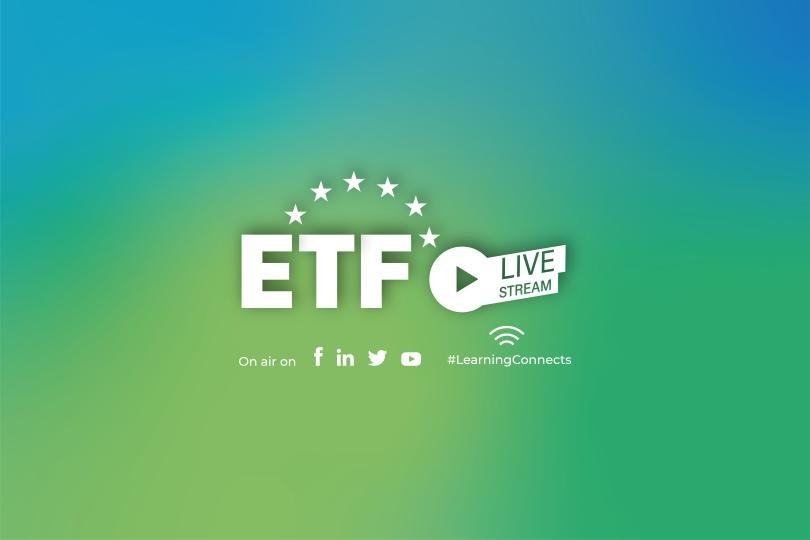
The ETF's Ukrainian Resource Hub: pragmatic support for Ukrainian migrants and refugees
In a month when the European Training Foundation’s (ETF) communications campaign is focusing on migrants, this week’s #LeaningConnects Livestream put the spotlight on a practical website aimed at helping Ukrainian refugees and migrants in the EU find work, training and education.
Launched in March 2022 – within weeks of Russia’s unprovoked invasion of Ukraine – the ETF’s Ukrainian Resource Hub was set up at the express request of the European Commission. Designed to help often traumatised refugees find their way in host countries across Europe – including major recipients Germany and Poland – more than 16,000 people have accessed the hub's unique combination of advice and links.
It is just one part of a multitude of military, financial and humanitarian assistance NATO, the EU, the UN and individual countries and organisations have extended to Ukraine and the 8 million people who have fled the countries since the war started on 24 February.
The hub features easy-to-follow links to language training, advice on accessing education and training, and how to get Ukrainian qualifications and experience recognised or validated in the EU. It is open to both Ukrainian migrants and employers, officials and others from EU member states seeking information on how they can help Ukrainians, or what they can expect when engaging with Ukrainians in education, training and employment.
Wednesday’s session (15 December 2022), which was streamed live across Facebook, LinkedIn, YouTube and Twitter, included contributions from users, managers and ETF representatives.
Opening the discussion, ETF qualifications and recognition expert Michael Graham, said the hub provides information in both Ukrainian and English and has a multitude of links to ministries, employment agencies and other resources in individual EU member states to help Ukrainians swiftly establish themselves in new lives that many thought would be a short, temporary stay.
Iryna Yuryeva, a German-based Ukrainian consultant to the ETF on the hub, who has managed the site since the spring, said the dual approach – addressing the needs of both Ukrainians and those in the EU who are engaging with them – made the site an excellent all-round resource. Although principally aimed at Ukrainians, by including click-throughs for those from the EU, the hub worked as a living resource that allowed for information to be exchanged between users and providers.
Key site areas include:
- Education
- Language training
- Additional qualifications and recognition of qualifications and prior learning
- Resources for younger and adult learners
- Country-specific information.
Iryna Spoilniak, a Ukrainian ecologist, who fled to Germany after the war started, said she had learned of the site from a Ukrainian friend and immediately accessed it to find information on learning basic German.
A fluent English-speaker, she said she had also used the hub to find out whether her professional experience as an ecologist could be put to use in Germany, or if she required further accreditation.
'Actually, I was surprised to find information about the recognition of diplomas on this site. I learned that my speciality is among unregulated professions, so using my experience is not as complicated as the path would be, for example, for a doctor.'
Information about the site is being spread via social media platforms – including those of the ETF, the European Universities Association, and via platforms such as Telegram, which is popular among Ukrainians.
Iryna Yuryeva said users were encouraged to use feedback forms so that hub managers could improve the information offering and better understand the profiles of users.
'We’ve a wide range of users - mothers of kids who want to find schools or how to transfer from school to university; men and women from Ukraine who are interested in opportunities to study in EU.'
The top location for unique visitors for the hub so far is Germany, closely followed by users in Ukraine and then Poland and the Czech Republic, she added.
One area in which the hub could be improved was through the use of more visual material to help users find their way around a site they were often turning to in times of stress and need, Iryna Spoilniak suggested.
The ETF, working in collaboration with its partners and networks, will continue to promote the hub so as to reach out to as many Ukrainian migrants and refugees as possible and help them access the support they need, and explore the work and training opportunities available to them in their host countries.
Did you like this article? If you would like to be notified when new content like this is published, subscribe to receive our email alerts.